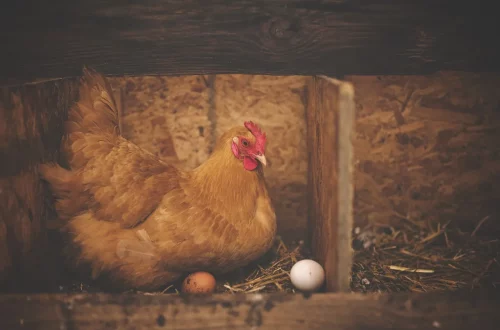
Effective Breath Freshener Solutions for Your Dog’s Health
Maintaining your dog’s oral hygiene is crucial for their overall health and well-being. Just like humans, dogs can suffer from bad breath, which can often be a sign of underlying health issues. A dog’s mouth is a gateway to their health; poor dental care can lead to more than just foul odor. It can result in gum disease, tooth loss, and even systemic health problems that affect vital organs. Many pet owners may be unaware that their furry friends need regular dental care, along with a balanced diet and routine veterinary check-ups.
Additionally, as dogs age, their dental health can deteriorate, making it even more important to pay attention to their breath and oral hygiene. There are various methods and products available to help keep your dog’s breath fresh and their teeth healthy. From natural remedies to specially formulated dental treats, the options can be overwhelming. However, understanding the underlying causes of bad breath and knowing how to address them can make all the difference in your dog’s health.
In the following sections, we will explore effective solutions for maintaining fresh breath in dogs, emphasizing the importance of dental care and offering practical tips for dog owners.
Understanding the Causes of Bad Breath in Dogs
Bad breath, or halitosis, in dogs can stem from a variety of causes, ranging from poor dental hygiene to more serious health issues. It’s essential to understand these underlying factors to effectively address the problem and ensure your dog’s well-being.
One of the primary reasons for bad breath in dogs is the build-up of plaque and tartar on their teeth. Just like humans, dogs can accumulate bacteria in their mouths, which leads to the formation of plaque. If not managed, this plaque hardens into tartar, resulting in gum inflammation and periodontal disease. This condition not only causes unpleasant odors but can also lead to painful infections and tooth loss.
Another common cause of bad breath is dietary factors. Certain dog foods, especially those that are high in protein or filled with artificial additives, can contribute to foul-smelling breath. Additionally, if your dog has developed a habit of scavenging or eating non-food items, this could lead to gastrointestinal issues, further exacerbating bad breath.
Moreover, certain health conditions can manifest through bad breath. For example, diabetes can lead to a sweet or fruity smell, while kidney disease may result in a urine-like odor. If you notice a sudden change in your dog’s breath or other concerning symptoms, it’s crucial to consult a veterinarian to rule out any serious health issues.
In summary, understanding the causes of bad breath in dogs is the first step toward finding effective solutions. Regular dental check-ups, a balanced diet, and attentive care can significantly improve your dog’s oral hygiene, leading to fresher breath and a healthier life.
Natural Remedies for Freshening Your Dog’s Breath
If you’re looking for natural solutions to combat bad breath in your dog, there are several effective remedies that can help. Many pet owners prefer these natural options as they are often safer and healthier compared to commercial products that may contain artificial ingredients.
One popular natural remedy is the use of herbs. Parsley and mint are excellent choices, as they not only help freshen breath but also provide additional health benefits. These herbs can be added to your dog’s food or given as a treat. However, it’s essential to use them in moderation and ensure that they are safe for your specific breed and size.
Another effective remedy is the introduction of crunchy fruits and vegetables into your dog’s diet. Carrots, apples, and cucumbers can help clean teeth and stimulate gums while providing fresh breath. The crunchiness of these foods removes plaque and food particles, contributing to better oral hygiene. Remember to remove any seeds or pits that could be harmful to your dog.
Additionally, regular water intake is vital for maintaining good oral health. Encouraging your dog to drink plenty of fresh water can help wash away food particles and bacteria that contribute to bad breath. You can also consider adding a splash of apple cider vinegar to their water bowl, as it has natural antibacterial properties that can help combat bad breath.
Finally, regular dental care practices, such as brushing your dog’s teeth with dog-safe toothpaste, can significantly improve their breath. Establishing a routine where you brush your dog’s teeth several times a week will help keep plaque and tartar at bay.
Incorporating these natural remedies into your dog’s routine can lead to fresher breath and improved overall health. Always consult with your veterinarian before introducing new foods or remedies to ensure they’re safe for your furry friend.
Choosing the Right Dental Treats for Dogs
Dental treats are a popular and convenient option for maintaining your dog’s oral hygiene. They not only help in freshening breath but also provide a fun way for dogs to clean their teeth while enjoying a tasty snack. However, with so many products on the market, it’s crucial to make informed choices about which dental treats are right for your dog.
When selecting dental treats, look for those that have been specifically designed to promote oral health. These treats should ideally have a texture that encourages chewing, which helps to scrub away plaque and tartar. Some treats are formulated with ingredients that actively combat bacteria, further enhancing their effectiveness.
Always check the ingredient list to avoid treats that contain artificial additives, preservatives, or excessive sugars. Opt for products that use natural ingredients and are free from harmful chemicals. It’s also important to consider your dog’s size and breed when choosing dental treats, as larger dogs may require different treats than smaller breeds.
In addition to selecting the right treats, moderation is key. While dental treats can be beneficial, they should not replace regular dental care practices, such as brushing your dog’s teeth. Treats should be given as a supplement to a comprehensive dental care routine.
Finally, consult your veterinarian for recommendations on dental treats that are suitable for your dog’s specific needs. They can provide valuable insights based on your dog’s health, age, and dietary requirements.
By making informed choices about dental treats, you can help ensure that your dog enjoys fresh breath and healthy teeth while indulging in a tasty snack.
Regular Veterinary Check-ups and Their Importance
One of the most effective strategies for maintaining your dog’s oral health and freshening their breath is regular veterinary check-ups. These visits are crucial not only for vaccinations and overall health assessments but also for professional dental cleanings and evaluations.
During a veterinary visit, your veterinarian can thoroughly examine your dog’s mouth and teeth, identifying any signs of dental disease or other health issues that may contribute to bad breath. Early detection of problems such as gum disease, broken teeth, or infections can prevent more serious complications down the line.
Professional dental cleanings performed by your veterinarian are essential for maintaining your dog’s oral hygiene. These cleanings go beyond what can be achieved at home, as they involve scaling and polishing the teeth to remove plaque and tartar build-up. Depending on your dog’s dental health, your veterinarian may recommend annual or biannual cleanings.
Additionally, your veterinarian can provide personalized advice on your dog’s dental care routine, including recommendations for specific dental products, dietary changes, and home care techniques. They can also guide you on how to brush your dog’s teeth effectively, ensuring that you are doing it safely and correctly.
In conclusion, regular veterinary check-ups play a vital role in ensuring your dog’s oral health. By staying proactive and addressing any dental issues promptly, you can help your dog maintain fresh breath and overall well-being.
**Note:** This article is not intended as medical advice. For any health concerns regarding your pet, please consult a qualified veterinarian for guidance and recommendations.




